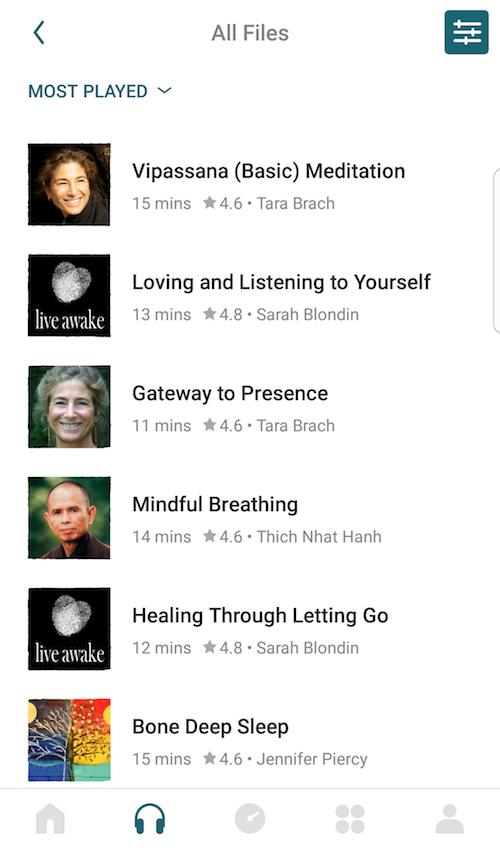Meditation is one of these things you need to try before having a definite opinion on the matter. I tried out of curiosity. I wanted to see if it would help me stay in the present and be more mindful. Spoiler alert: it did. Now that I am over 100 sessions, it’s time to share what else I took from it.

My Headspace stats in 8 months
It’s important to find a style of meditation that suits you
You won’t be able to practice meditation on a regular basis if you are not following someone you enjoy listening to. I couldn’t recommend enough Headspace for beginners, which is the app that I’m still using. It will help you get familiar with breathing as well as meditation techniques like visualisation and noting. I shared in a previous blog post a Ted Talk of its founder, Andy Puddicombe.
When you are more at ease in your practice, you can move to Insights Timer which will give you access to more meditation experts.

It’s hard to stick to things at the beginning
No matter how hard you try, the beginning is going to be difficult and is the most critical period to get a habit going. For me it wasn’t enough to tell myself “it’ll get better with practice”. I had to create different levels so I could imagine my progress like in a video game. In this case, my levels were:
- Discovery
- The “why am I doing this” phase
- Not beginner anymore, but not there yet
- The “I think I’m getting used to it” phase
- Starting to enjoy it
- Mindful and present most of the time
- Able to do meditation outside my home
- Addicted
The second and third levels are critical and are where I very often stop new habits I’m trying to create. What changed this time for me was that I knew there was more to it than the initial struggle. If I failed at being focused and present in one session, it didn’t mean I had to throw all the previous ones I did well and avoid doing it again.
You become better at anything with practice
Meditation is like a skill. The more you practice it, the easier it will get. During the first few sessions, I was restless. My body was moving, my mind was wandering, and it required a lot of effort to remain still and focused. Some days, 10 minutes of meditation looked like an eternity. Now, I meditate 15 to 20 minutes per day in the bus without feeling distracted (most of the time).
It’s okay to fail
One of the biggest things I took away from meditation is that it’s okay not to be great at a new thing. The most important is what you’re going to do about it: are you going to accept it without judging yourself, or are you going to give up? Do you really want to do this, or is it just a fad? I was determined to make it work for me because I knew I needed it and would eventually love it.
There isn’t an emotion that taking a deep breath can’t soothe
I learned that if you are feeling frustrated, sad, angry, heartbroken, stressed, bored, and/or overwhelmed, taking a few deep breaths will put you back on track. When I feel that way but can’t meditate on the spot, I tell myself to take the deepest breath of the day. It makes that moment more special. It will be one out of thousands breaths, but it will be the deepest one.
Patience rises inwardly, not outwardly
It is by far the most important thing I ever learned from meditation. It taught me that change comes inwardly, and that I shouldn’t expect people to do it for me. My feelings are a reaction that I choose to have by seeing things as relevant or not. If I get impatient, only I control it and only I can make myself calmer.
Aside from helping me manage my impatience on a daily basis, the impact it has on challenges I face, but also my relationships and my coaching practice is colossal. I can now see clearly when someone comes to me hoping to pass their problems onto me instead of owning up to them. In the past I used to make these problems my own. I now understand and accept that if only I can manage myself, only the others can manage themselves. It is very empowering.
To check more articles on mindfulness, click here.

